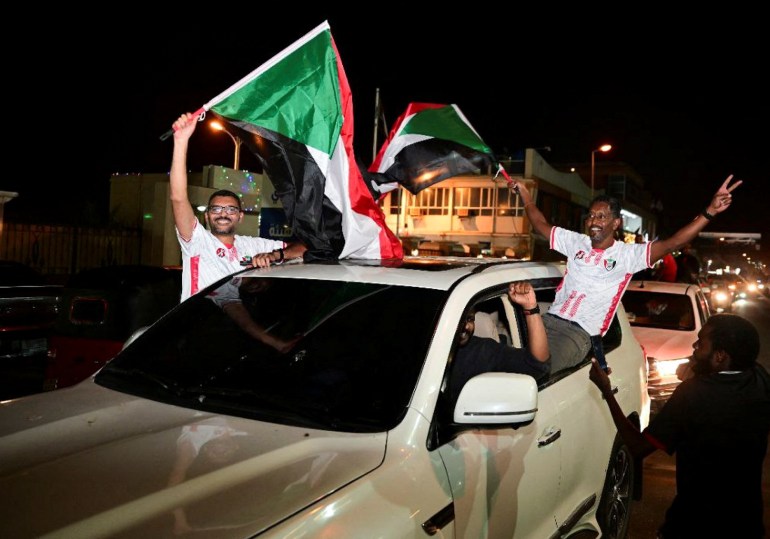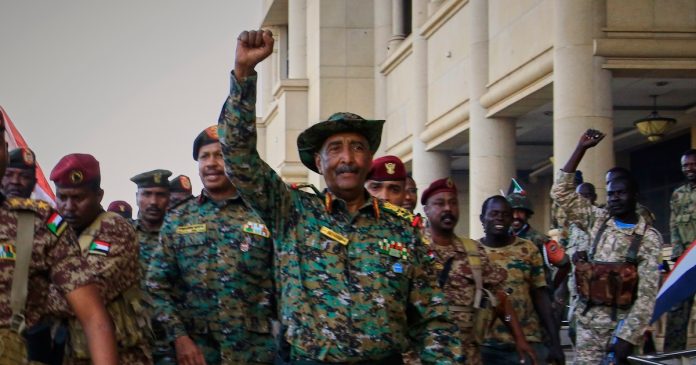Sudan’s army has achieved significant victories in Khartoum against the Rapid Support Forces (RSF) as their two-year war continues.
Despite this progress, the conflict between the Sudanese Armed Forces (SAF) and the RSF is far from resolution and poses a threat to the country’s territorial unity.
There are concerns that the warring factions, each with their own supporters, will solidify control over captured territories.
Which areas have the army taken?
The Sudanese army and its allies are celebrating two recent victories.
Just recently, army chief Abdel Fattah al-Burhan declared that Khartoum is now “free” after reclaiming the airport from the RSF and asserting full control over the city, compelling paramilitary troops to retreat southward.
The RSF’s initial capture of the airport at the start of the conflict in April 2023 provided them with a strategic advantage.
In another significant win, SAF troops managed to recapture the presidential palace in Khartoum, marking a symbolic victory in their counteroffensive against the RSF that began last year.
Al-Burhan, acting as the country’s leader, announced the successful takeover of Khartoum from the presidential palace, stepping foot in it for the first time in two years.
How will taking Khartoum affect the war’s future?
Since the RSF first seized parts of Khartoum early in the conflict, the city has been a focal point of the fighting.
The army hopes that reclaiming the city will shift the momentum of the battle and potentially spread to other regions.
Their control of the capital could impact international perceptions, as leaders of both the SAF and RSF have sought support from regional entities.
While the SAF has been reluctant to engage in peace talks, the recapture of Khartoum may provide them with leverage in future negotiations.
Having control of Khartoum airport allowed the RSF to use it for supplies and logistics, as well as for media and propaganda campaigns to demonstrate their ability to challenge state authority.
The army can now utilize the political significance of retaking the airport and the rest of Khartoum to better control supply routes.
Does this mean the war is nearly over?
The war was sparked by disagreements between the army and RSF leaders over integrating the paramilitary into Sudan’s armed forces.
The conflict remains deeply entrenched, with both sides controlling extensive territories and engaging in fierce battles, indicating a prolonged struggle for peace.
Combat continues in various regions, including Darfur, Kordofan, and Gezira state, with no clear resolution or peace talks on the horizon while both sides maintain the support of their respective regional allies.
Air strikes in urban areas have resulted in civilian casualties, intensifying the humanitarian crisis.
The High Commissioner for Human Rights expressed deep concern over reports of civilian deaths in recent strikes in North Darfur.
What are the humanitarian effects of the war?
The power struggle between the two factions has led to a severe humanitarian crisis with over 12 million people displaced, many seeking refuge in neighboring countries.
The crisis has led to food shortages, with nearly 25 million people in dire need of assistance, and approximately 600,000 on the brink of starvation.
Both sides have been accused of obstructing aid delivery, exacerbating the suffering of the population, while the RSF has been accused of looting humanitarian supplies.
Additionally, disruptions in agriculture due to the conflict have severely impacted food production and the healthcare system in Sudan, leaving millions of children in urgent need of aid.

What happens next?
Experts and organizations like the African Union warn that Sudan’s civil war could lead to partition or de facto fragmentation of the country.
The recent establishment of a breakaway government by the RSF and its allies has raised concerns from the international community, reflecting similar historical precedents of strife leading to secession.
Despite these challenges, the most probable scenario in the short term is a protracted conflict with continued international pressure for negotiations, as neither side appears willing to compromise.




